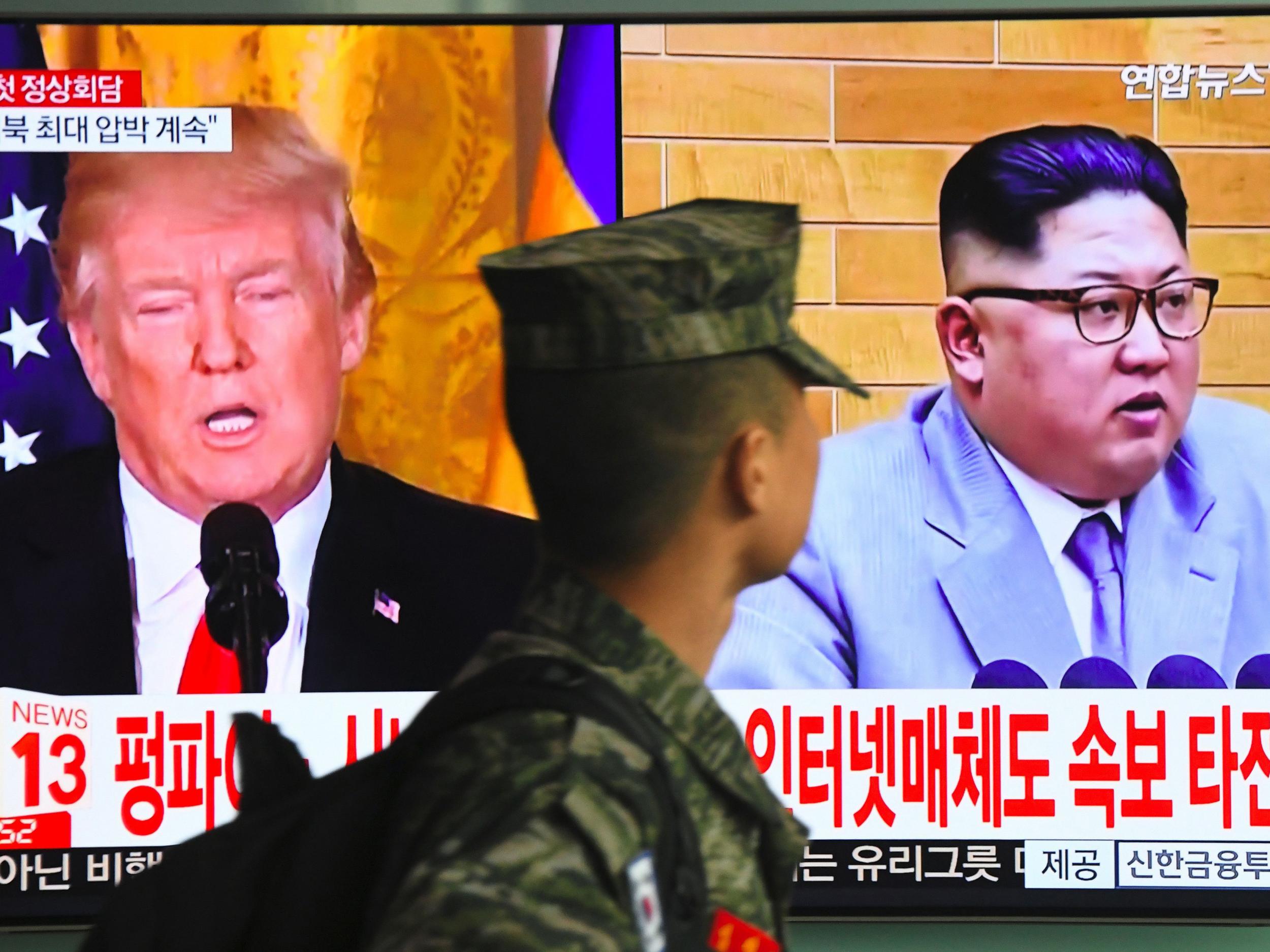Could a US-North Korea peace pact finally be on the cards?
The time has come for both sides to take a risk for peace. Mr Trump believes himself to be the great dealmaker; well, now is his chance to demonstrate his prowess

“Good morning. Rocket man, I believe?”
“Indeed. Mentally deranged US dotard, I presume?”
Perhaps the mutual greetings of Donald Trump and Kim Jong-un won’t quite match the rudeness of some of their recent name-calling, echoing a famous David Low cartoon about the pre-war Hitler-Stalin pact. As with previous unlikely alliances, the world is entitled to wonder precisely how sincere this new friendship between previously sworn enemies will prove. The two men have virtually nothing in common. Well, apart from their eccentric hairstyles, tendency for nepotism, favouring dynastic succession, vast egos, equally formidable inferiority complexes, a taste for propaganda, general childishness and a firm belief that attacking one’s enemies, verbally or otherwise, is always the best form of defence.
The more important question is where America and North Korea have any interests in common. The answer to that is more promising than it might first appear from the obvious ideological differences. Recent developments, while alarming, have served the purpose of concentrating minds in Pyongyang and Washington alike.
Thus, the rewarding product of President Trump’s brinkmanship and dangerously aggressive rhetoric towards Kim – and a marked tightening of economic sanctions – is that they have pushed Kim, at least, towards the negotiating table, albeit with some impressive rocket launches.
By the same token, it has to be conceded that Kim’s determination to equip himself with nuclear weapons, with the potential to cross vast distances across the Pacific, has also spooked the White House into considering its options – with a fresh dose of realism. Even when North Korea had little in the way of weapons of mass destruction it was always able to flatten Seoul within a matter of minutes of war breaking out on the peninsula, and wreak huge damage on Japan. The ramping up of that threat and the probability of North Korean nuclear-tipped missiles have made even Mr Trump willing to try a new policy.
The time has come, then, for both sides to take a risk for peace. Mr Trump believes himself to be the great dealmaker; well, now is his chance to demonstrate his prowess. He retains his commitment to make North Korea renounce nuclear weapons. His point made about his capability, Mr Kim has indicated his openness to a nuclear-free Korean peninsula. With the cooperation of a more doveish government in South Korea, and the continuing support of the Chinese and Japanese governments – who have better things to worry about than their volatile neighbour – the road to some sort of diplomatic settlement opens up, at least.

If Kim can be assured that his regime and dynasty is secure, that he can keep his gulags and continue to abuse his own people, then he may prove willing to at least scale back his nuclear arsenal, and tone down the bellicose talk about American dogs and imminent reunification. For his part, all Mr Trump desires is that Americans, and their east Asian allies, can sleep soundly in their beds (apart from the odd false alarm triggered by an overenthusiastic civil defence official in Hawaii).
Which brings us to the downside of the Trump-Kim Deal, if such it turns out to be. It would undoubtedly be good for world peace, good for the peoples who live in that increasingly unstable region, and good for American national security. On the other hand, Mr Trump’s amoral foreign policy, which would reach its apogee in a treaty with the last Stalinist leader on earth, would leave millions of North Koreans to poverty, starvation and torture. It could be that a detente between the United States and the Democratic People’s Republic of Korea might yet attract business investment and some amelioration in North Korean living standards, but it would remain one of the cruellest regimes in the world. If America is going to deal with Kim, they should at least realise who is going to pay the highest of prices for that peace.
Join our commenting forum
Join thought-provoking conversations, follow other Independent readers and see their replies
Comments
Bookmark popover
Removed from bookmarks